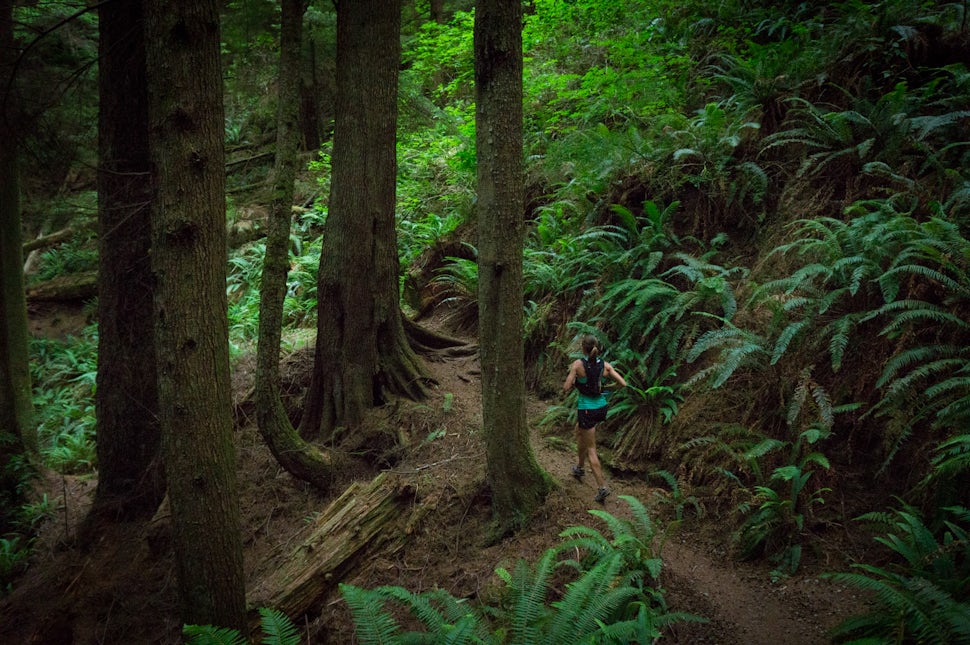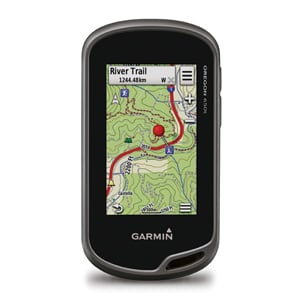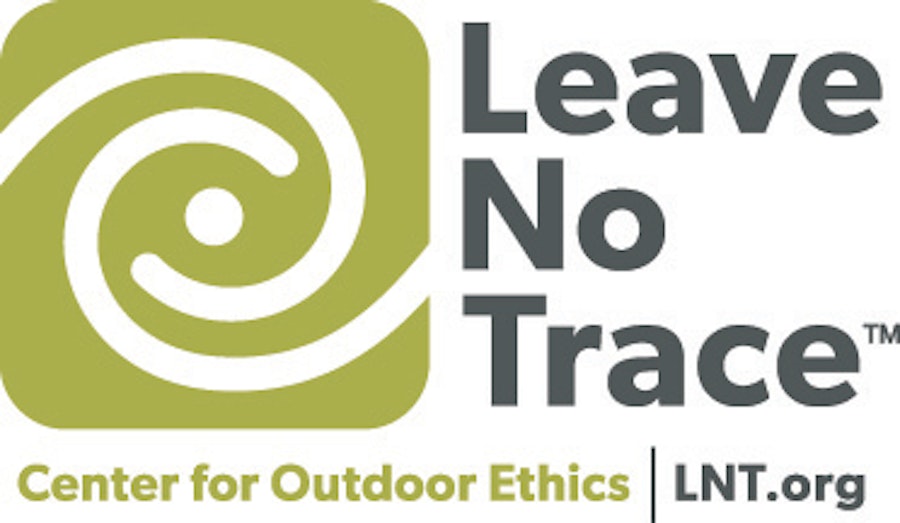8 Reasons Why You Should Turn Your Next Hike into a Trail Run
Fast is fun!

Let’s be clear on one thing from the get-go: we love hiking. We are in no way down on hiking. When we have the time, we hike like mad fiends. If you’re going to spend multiple days exploring the wilderness on foot, slowing down and immersing, hiking is where it’s at. However, if you’ve checked out our posts here on The Outbound, you may have noticed that while the titles say "hike", the photos say "run". More often than not we take our trail time at high(ish) speed. Here’s why:
Trail running isn’t just for the über intense, compression-sleeve strutting athlete that feasts readily on gels and bars and guzzles litre after litre of electrolyte-infused water while training for their next 100-miler. Trail running can grant anyone a whole new lease on adventure.
Not yet convinced? Here are 8 reasons to consider swapping your hiking boots for trail runners for your next adventure:

1. Cover more ground in less time
You’ve seen photos of an amazing waterfall, but it’s described as a 2-day hike and you only have one day to give. One of the marquee mountains in your region has been calling your name, but you can’t afford the 3 days it typically takes to climb. Run it. We all love exploring the wilderness, but we also all share the reality of limited time to do so. The choice to run is the choice to see more, to expand your outdoor opportunities.
2. Lighten your load
When we’re thru-running a trail such as the Juan de Fuca or up and down Vancouver Island’s highest peak, gaining more elevation than climbing Everest as you do, and come across backpackers, the comments are always the same: “You’re nuts!” and “That’s impressive.” But as we compare our 5 lb. hydration packs with their 50 lb. bags, and watch their quadriceps quivering under the load as they negotiate a step-down on the trail, we can’t help but wonder: Who’s actually the more impressive? Or, dare we say, nuts?
With trail running you can leave the big pack and heavy boots behind. Not only do you need less equipment, but you are able to move with greater fluidity, balance and speed. Last, with so little to carry your bag is quickly packed (more on the what and how of that another time) and you’re out the door without needing to fret whether you have enough propane for your stove.
3. Get fit while gaining views
This is a no-brainer: running burns heaps of calories, improves your proprioception, and strengthens your core all while getting you to the crazy awesome destination of your choice. Yes, again, hiking is awesome too and a great way to maintain health; but trail running will simply get your fitness to the next level and, by extension, expand your capacity to adventure.
4. Downhill running is so damn fun
Full stop. In all fairness, can the same be said for hiking?

5. Fast is fun (and so’s getting dirty along the way)
Whether downhill, uphill or weaving through flat trails in the forest, there’s something magical about moving swiftly over ground. A deep satisfaction and child-like exuberance takes hold when you lean hard into a turn, hop between rocks or leap across a stream (sometimes you make it across, sometimes you don’t - either way you win with a grin). And then you’re dancing along a fallen log, scrambling up a scree slope, or, better yet, churning through a bog filled thick with mud, not a hope in hell of staying clean. You’ll find yourself first surrendering to it, then embracing it...why resist this chance to feel free?
6. There’s safety in speed
Your shoes got wet in that bog, but in a couple of hours they’ll be drying by the radiator back home. (While, it’s also worth noting, you sip a satisfying beer and warm up over a home-cooked meal.) The point, within reason, is this: by compressing your time on the trail, you also limit your exposure to hazards. Weather changes quickly, especially in the hills. Get wet and chilled on a hike and you may still have days of discomfort and exposure ahead of you. On the other hand, if you up the tempo and complete a backcountry adventure in a day, you can be more selective about our weather windows.
7. Become intimate with your local trails & parks
Trail running is a great way to explore local trails and get intimate with the natural gems in your own backyard. The best trails for running aren’t necessarily the best trails for hiking, and guaranteed that the search for new trails will ultimately lead you to discover unfrequented wild places. What’s more, by covering more ground at a run you enhance your orientation and understanding of a place, and in less time. Gain knowledge of the best trails around, be intentional, take pride in showing others, and run away with a deeper connection to the land.
8. Expand your community of enthusiastic outdoorsy folk
The trail running community has an accessible and friendly vibe that prides itself on being the easy-going younger sibling of road running. You can leave aside pace times and training regimes, hike the hills, make frequent stops for view gazing, and meet others who share the call of the wild. Trail runners welcome and embrace newbies, they are a keen bunch that can’t wait to share with you their own experiences and the light-and-fast Kool Aid...or electrolytes rehydration drink, as the case may be.
See more from Jennie and Rumon at their website, A State Of Wild.
Cover photo: Rumon Carter
Please respect the places you find on The Outbound.
Always practice Leave No Trace ethics on your adventures. Be aware of local regulations and don't damage these amazing places for the sake of a photograph. Learn More
We want to acknowledge and thank the past, present, and future generations of all Native Nations and Indigenous Peoples whose ancestral lands we travel, explore, and play on. Always practice Leave No Trace ethics on your adventures and follow local regulations. Please explore responsibly!
Do you love the outdoors?
Yep, us too. That's why we send you the best local adventures, stories, and expert advice, right to your inbox.
Related
Community
© 2024 The Outbound Collective - Terms of Use - Privacy Policy












